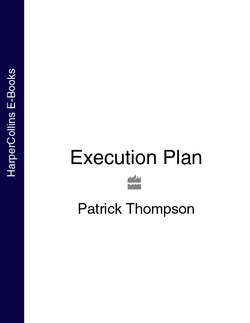Читать книгу Execution Plan - Patrick Thompson - Страница 16
IV
ОглавлениеBorth is really not much more than a road by the sea. You approach it by way of a long road that follows the estuary of the river Dyfi. The road winds past the college grounds, a thin strip of swampland, and a golf course. The road goes through the middle of the links, splitting the course into two and providing golfers and motorists alike with an extra hazard. A high sloping wall of grey concrete blocks the view out to sea. There are car parking spaces next to the sea wall. Inland, there are mountains and clouds.
A large public toilet, which has won awards, stands between the sea wall and the town. The shops all sell the same things; buckets and spades, strange paperbacks, cheap tat. Behind the main road, reached by way of a track, is a church of dark stone. It’s not visible from the town. It’s as though they’re ashamed of it.
A railway line runs behind the town and there’s a station which is not abandoned, despite appearances. Trains stop there at uncertain intervals. Once in a while, if the wind is in the right direction, you hear one clattering off along the estuary, upsetting the seagulls. The town is bookended by two small amusement arcades.
I spent a lot of time in the amusement arcades.
There are two chip shops and one general store. On a high promontory overlooking the town there is a war monument. From there, looking down, you can clearly see that Borth is a straight line of a town, that single road running dead level with the shore. Inland, a great expanse of featureless flat land stretches away to the mountains. It’s as though someone decided to try to build a resort on a salt marsh, just to see if it could be done. From this high viewpoint, you can also see the beach.
To get to the beach you have to climb over the sea wall, which is just over six feet high. It’s triangular in cross-section, and slopes at about forty-five degrees to the vertical. There are steps, but most people scramble up the flanks. In the lee of the wall you notice a chilling wind. On the top of the wall, it does its level best to throw you miles inland. Families wrapped in flapping cagoules struggle with chip papers. The beach is of fist-sized pebbles that are uncomfortable to walk, lie, or fall on. Either the tide or the bored populace has arranged the pebbles into large steps. Scrambling inelegantly down them, you come to a foot-wide strip of sand and then the heaving grey sea. Someone’s dog will shake itself dry next to you. Screeching herring gulls flap out of the surf and are whisked away by the wind.
On bank holidays, people come from most of the Midlands to spend a grim couple of hours struggling along the shore. Children unsuccessfully try to spend their pocket money in the shops. At about five, the town empties. The tourists go home. The wind dies down. The pubs do a miserable trade. In the evening, there’s nothing to see in Borth.
We used to go there in the evenings.
